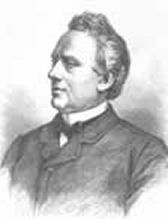
Legislative elections were held in Romania on 30 November 2008. The Democratic Liberal Party (PDL) won most seats in both the Chamber of Deputies and the Senate, although the alliance headed by the Social Democratic Party (PSD) won a fractionally higher vote share. The two parties subsequently formed a governing coalition with Emil Boc of the PDL as Prime Minister.

General elections were held in Belgium on 11 April 1954. The dominant Christian Social Party won 95 of the 212 seats in the Chamber of Representatives and 49 of the 106 seats in the Senate. Voter turnout was 93.2%. Elections for the nine provincial councils were also held.

General elections were held in Belgium on 1 June 1958. The result was a victory for the Christian Social Party, which won 104 of the 212 seats in the Chamber of Representatives and 53 of the 106 seats in the Senate. Voter turnout was 93.6% in the Chamber election and 93.7% in the Senate election. Elections for the nine provincial councils were also held.

General elections were held in Belgium on 27 November 1932. The Catholic Party won 79 of the 187 seats in the Chamber of Representatives and 42 of the 93 seats in the Senate. Voter turnout was 94.3%.

General elections were held in Belgium on 20 November 1921. The result was a victory for the Catholic Party, which won 70 of the 186 seats in the Chamber of Representatives. Voter turnout was 91.1% in the Chamber election and 91.0% in the Senate election.

Full general elections were held in Belgium on 14 October 1894, with run-off elections held on 21 October 1894.

Partial legislative elections were held in Belgium on 22 May 1898, with run-off elections held on 29 May. Under the alternating system, elections for the Chamber of Representatives were held in only four out of the nine provinces: Hainaut, Limburg, Liège and East Flanders. Thus, only 75 seats out of the 152 seats in the Chamber of Representatives were up for election. The Catholic Party retained their absolute majority.

Full general elections were held in Belgium on 27 May 1900.

Full general elections were held in Belgium on 2 June 1912.

Partial general elections were held in Belgium on 24 May 1914. The result was a victory for the Catholic Party, which won 41 of the 88 seats up for election in the Chamber of Representatives.

General elections were held in Belgium on 26 May 1929. The result was a victory for the Catholic Party, which won 71 of the 187 seats in the Chamber of Representatives. Voter turnout was 94.0%.

Partial general elections were held in Belgium on 8 June 1847. The result was a victory for the new Liberal Association, which had been formed the previous year. It won 33 seats to the Catholics' 21, as the latter were split into dogmatic and liberal groups. Voter turnout was 77%, although only 1% of the country's population was eligible to vote.

Full general elections were held in Belgium on 13 June 1848. They followed an equalisation of the tax qualifications for voters, which widened the franchise from 1.0% of the population to 1.8%. Unlike the previous rules which had favoured Conservatives and Catholics, this benefitted the Liberal Party and damaged the Catholics, who lost more than half their seats.
Partial legislative elections were held in Belgium on Tuesday 9 June 1835. In the Senate elections Catholics won 31 seats and Liberals eight. Only 23,000 people were eligible to vote in the election.
Partial legislative elections were held in Belgium on 12 June 1843. In the Senate elections Catholics won 32 seats and Liberals 13. Voter turnout was 86.0%, although only 21,865 people were eligible to vote.

General elections were held in Belgium on 10 December 1857, the first full general elections since 1848. The elections were called by royal order of 12 November 1857, dissolving the Chamber of Representatives that had convened in a new session only two days earlier.

Partial general elections were held in Belgium on 11 June 1870. In the elections for the Chamber of Representatives the Liberal Party and the Catholic Party both won 61 seats. Voter turnout was 60%, although only 51,435 people were eligible to vote. Early elections were held later in the year.

Partial general elections were held in Belgium on 8 June 1886. In the elections for the Chamber of Representatives the result was a victory for the Catholic Party, which won 98 of the 138 seats.

Partial general elections were held in Belgium on 14 June 1859. The result was a victory for the Liberal Party, which won 69 of the 116 seats in the Chamber of Representatives and 31 of the 58 seats in the Senate. Voter turnout was 55.9%, although only 49,672 people were eligible to vote.

Legislative elections were held in Belgium in June and July 1884, for partial Chamber and full Senate elections respectively. Voter turnout was 79.1% in the Chamber of Representatives elections, although only 69,276 people were eligible to vote.














